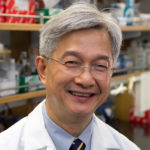- Time:
Clinical medicine stands at the threshold of a diagnostic revolution. At the current pace, advances in next-generation sequencing and molecular diagnostics could render the use of invasive techniques for prognostic analysis obsolete within a decade. Development of novel methods for capturing circulating tumor cells (CTCs) and tumor DNA (ctDNA), smartly dubbed liquid biopsies, have allowed researchers to detect a vast array of cancers, often before the physical manifestation of symptoms, as well as provide clinicians with the ability to track the progression of tumors throughout therapeutic treatment—all through the use of a minimally invasive methods.
In this webinar, we will explore how liquid biopsies are shaping the diagnostic landscape and how these changes will impact physician decision making, as well as affect patient care. Our panelists will describe their cutting-edge research for capturing and enriching CTCs and ctDNA. Moreover, they will reveal their latest discoveries for identifying and validating the appropriate biomarkers to distinguish cancerous from noncancerous tissue. Finally, our experts will give us a glimpse into recent developments that could significantly impact the liquid biopsy field and provide answers to questions submitted by our audience.
Who Should Attend
- Scientists interested in liquid biopsy
- Clinical researchers
- Molecular diagnostic researchers
- Clinicians
- Cancer researchers
You Will Learn
- The fundamental elements of liquid biopsy and what makes it such a powerful molecular diagnostic technique
- How a completely noninvasive biofluid like saliva can utilized for systemic disease detection.
- How ctDNA is being used to track in real time to predict the progression and outcomes for ovarian and endometrial cancers
- The outcomes of Phase III studies that utilize the capture of CTCs for the detection, tracking, and prognosis of metastatic melanoma
Produced with support from:

Panelists

John Martignetti, M.D., Ph.D.
Associate Professor of Genetics and Genomic Sciences,
The Mount Sinai Hospital

David Wong, D.M.D., DMSc
Associate Dean for Research,
UCLA School of Dentistry


